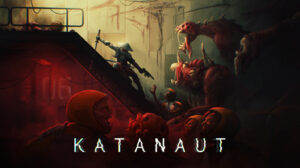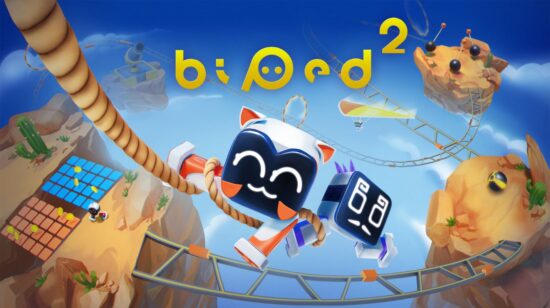Quantic Dream Make Surprise Pivot to Multiplayer

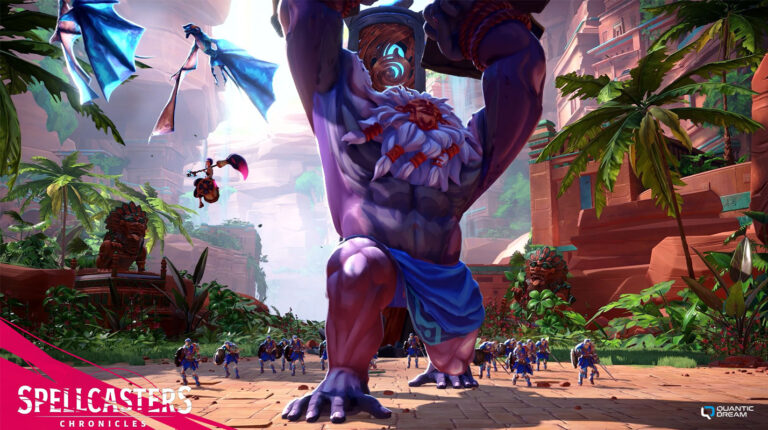
- Quantic Dream shifts from cinematic games to MOBA with Spellcasters Chronicles, a 3v3 free-to-play online deckbuilder.
- Story focus stays, with community-driven lore about wielding divine “Source” energy.
- Closed beta incoming, as the studio tests new ground alongside work on Star Wars Eclipse.
Jump to:
Out of Leftfield
Quantic Dream, the French studio behind boundary-pushing titles like Heavy Rain and Beyond: Two Souls, has announced a surprise pivot into multiplayer gaming. Spellcasters Chronicles is a 3v3 free-to-play online game with deckbuilder mechanics, and a far cry from the studio’s previous ‘games as films’ titles.
Players take on the role of a Spellcaster and can build a deck from seven schools of magic, with over 50 spells and summons available, including lumbering Titans, skeleton warriors, and towers to control the terrain. This gives gamers ample opportunity to build decks that suit their playstyle, whether they want to devastate other players with powerful offensive abilities or power-up allies with special buffs.
David Cage, the founder of Quantic Dream, has acknowledged that this game might seem to come out of leftfield in a recent post on the studio’s official site. “For over 28 years, Quantic Dream has been pushing the boundaries of interactive storytelling. With award-winning titles like Heavy Rain, Beyond: Two Souls, and Detroit: Become Human, more than 25 million players worldwide have shared the journeys of Ethan Mars, Jodie Holmes, Kara, Markus and Connor, with us.”
“This new title may surprise our fans as it is very different from what we have done so far. But taking risks, challenging ourselves, exploring new ways of playing and telling stories, and attempting what seems impossible, has always been part of our DNA.”
A Focus on Narrative And Community
Quantic Dream’s previous games arguably put more emphasis on story than gameplay, and the studio is set to have a similar focus on narrative for Spellcasters Chronicles, albeit in a slightly different way.
“Spellcasters Chronicles began as a creative experiment, an opportunity to channel our passion for storytelling into a shared, living world,” said Gregorie Diaconu, Game Director, in a press release. “While very different from our previous titles, it builds on what has always driven us: giving players the power to shape stories – this time in a collective manner.”
“We are starting our closed beta phase with our core-loop focused on arena battles and will introduce community narrative and other elements of our macro-loop in the following months,” he added. “Your feedback will be invaluable in shaping and refining the experience, ensuring that the game evolves into something truly special, built hand-in-hand with those who play it.”
So far, the lore for Spellcasters Chronicles involves the death of gods. However, they’ve left behind parts of themselves as a mystic force called Source, which certain characters have found they can use to “weave fate,” as the studio calls it. Despite being billed as “unique,” elements of this lore do sound an awful lot like the background for Yellow Brick Games’ ARPG Eternal Strands, which was released in January this year.
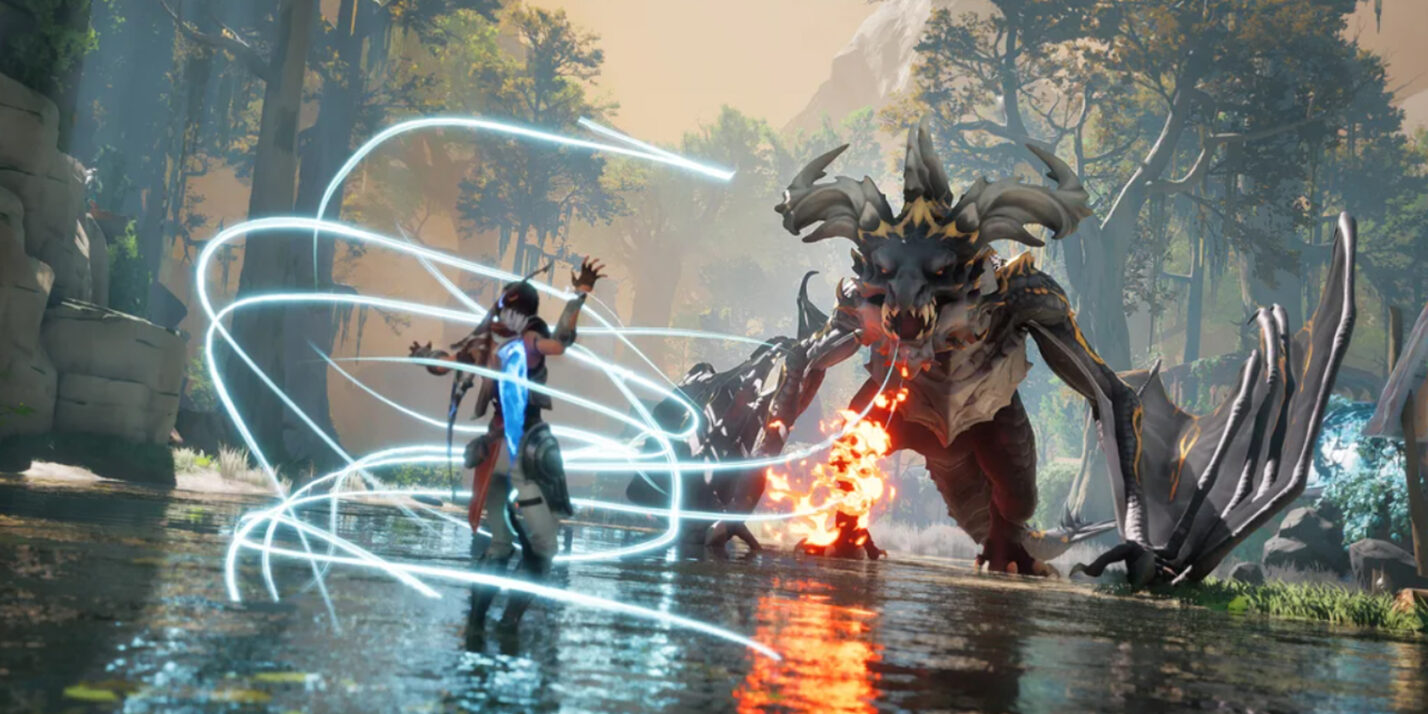
Even so, Quantic Dream and David Cage believe they have something special that players haven’t seen before, and that their involvement is necessary to ensure Spellcasters Chronicles succeeds.
“We also know how demanding it is to create something new,” said Cage. “Earning the trust of players, standing out in such a competitive space, and introducing fresh concepts is incredibly challenging. And since we have no legacy in this genre, we know we have everything to prove – which is why your support and feedback will be essential. Together, we believe we can create something truly unique.”
Entering a Crowded Landscape
Spellcasters Chronicles is entering an industry already overflowing with multiplayer online battle arenas (MOBAs) including perennial heavy-hitters like League of Legends, Dota 2, and Valorant. As such, Quantic Dream has been placing emphasis on how its title has a fundamental focus on strategic depth, with the 3v3 matches including a lot of verticality and lasting no longer than 25 minutes.
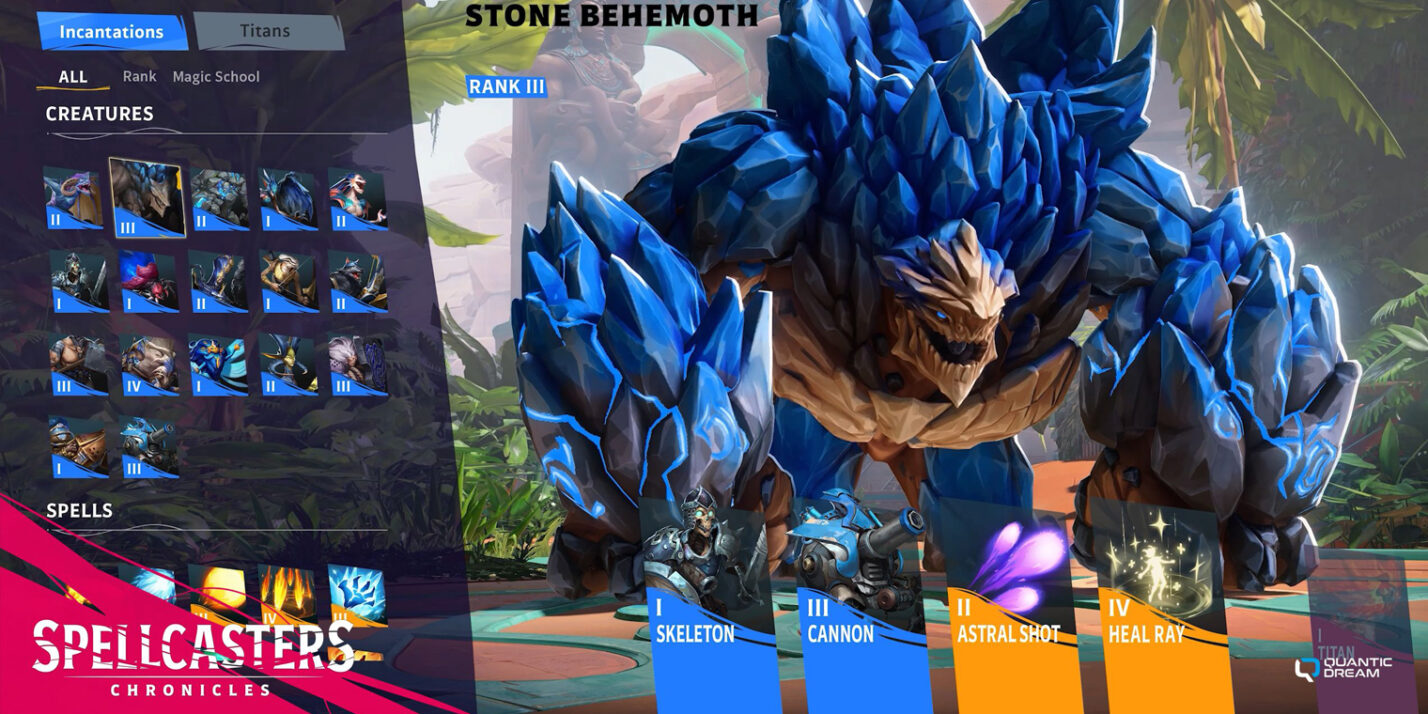
Quantic Dream also publicly announced and demoed the game at TwitchCon this past weekend, and from all accounts it was well-received: the game’s Discord is filled with positive feedback from those who got to try it out, alongside suggestions for tweaks. Gamers who’d like to get the chance to play it themselves can sign up for the closed beta through the official Spellcasters Chronicles site – it’ll be available to gamers in Europe and North America, with a full release to follow a later date.
Quantic Dream’s Other Games
David Cage made a name for himself by being very vocal about how he approaches game design: he makes them as if they were movies, in a similar way to what Supermassive Games has since made a name for itself doing. That is, by putting emphasis on the characters over gameplay mechanics. Although this isn’t how Quantic Dreams started.
Cage’s first game was Omikron: The Nomad Soul (1999), a sci-fi adventure title that featured David Bowie in the game and his songs on the soundtrack. However, it was the second Quantic Dream title, Fahrenheit/Indigo Prophecy (2005) that first introduced the world to Cage’s potential auteur status.
“We wanted to allow the player to play physically with the story,” Cage said at the time. “This was one of the goals of Fahrenheit. We wanted also to create a couple of emotional situations where you would have moral choices. And most of all, we wanted to break with old game paradigms: game mechanics, no weapons, no cars, no puzzles, just choices. This is what we managed to do with Fahrenheit.”
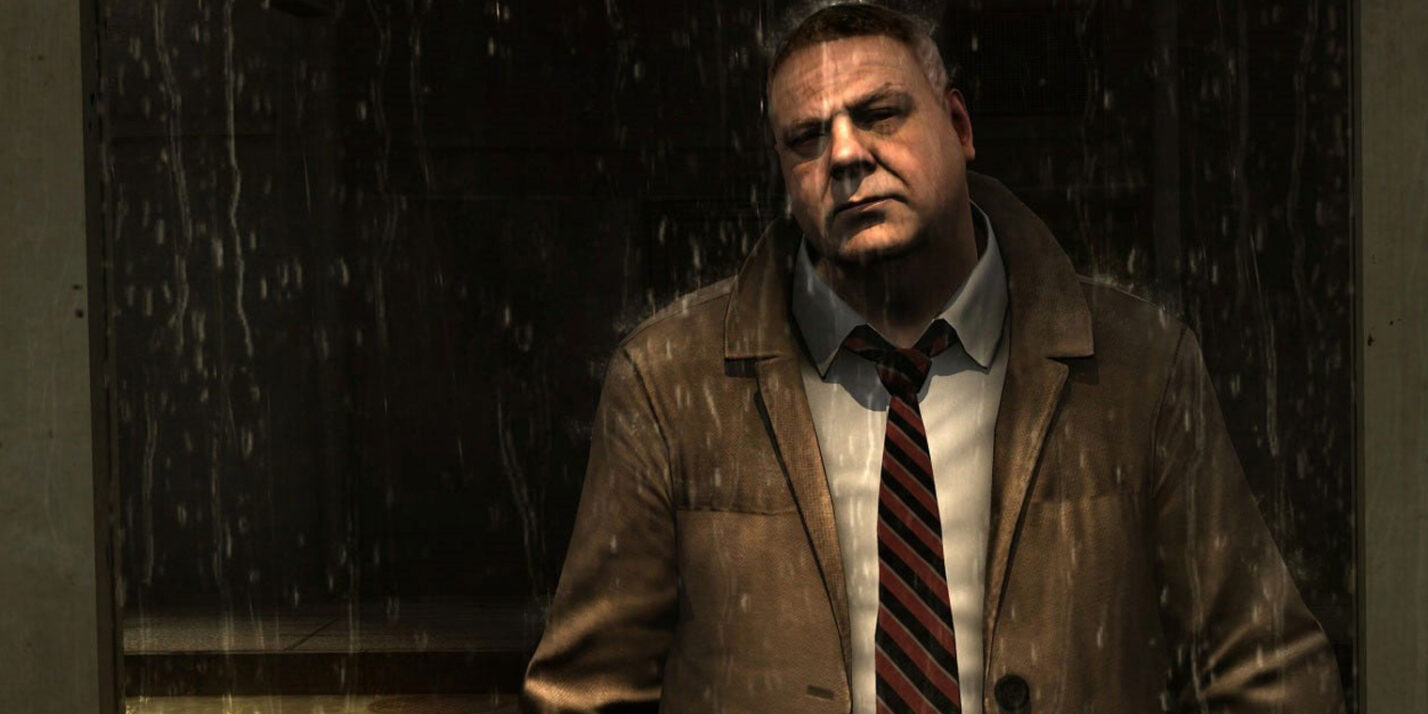
It didn’t do well commercially, but this didn’t stop Cage from continuing his ‘games as movies’ idea with 2010’s Heavy Rain, which let players take on four characters with a link to a serial killer. It won multiple BAFTAs, including Best Story and Technical Innovation, and helped cement Cage as someone to watch.
Heavy Rain’s success allowed Quantic Dream to branch further out into cinematic games, with 2013’s Beyond: Two Souls featuring famous actors Elliot (formerly Ellen) Page and Willem Dafoe. This, and 2020’s Detroit: Become Human were both very well-received, with the latter also including top talent like Clancy Brown and Lance Henriksen.
Although Spellcasters Chronicles is a change of pace for Quantic Dream, the studio is still working on a new cinematic game, and it’s a big one: Star Wars Eclipse. It’s being developed in conjunction with Lucasfilm Games and is set during the High Republic era of the franchise (the recent Star Wars: The Acolyte TV series is also set during this time period).
Games Should Be For Adults
Much like how Gearbox CEO Randy Pitchford just can’t help putting his foot in his mouth, David Cage has also developed a reputation as someone who maybe shouldn’t talk so much. Although he has arguably been ahead of the curve for a while, he also routinely disparages the very industry he works in.
His appearance at the DICE Summit in Las Vegas back in 2013 proved a particularly controversial point as he detailed a lengthy manifesto calling out video games for catering to children.
“When you think about it, you realize that many games have absolutely nothing to say,” he said. “Buy crap, and you will get more crap. Buy exciting, ambitious, risky games, and you will get more of them.”
He also voiced a point he’s made multiple times in the years since, that games shouldn’t be afraid to tackle real-world issues, that they should even actively incorporate them so then the game has something meaningful to say.
“By the time you turn off your console, the game will leave an imprint. You will think about what you’ve seen. That’s what every creative medium should achieve.”
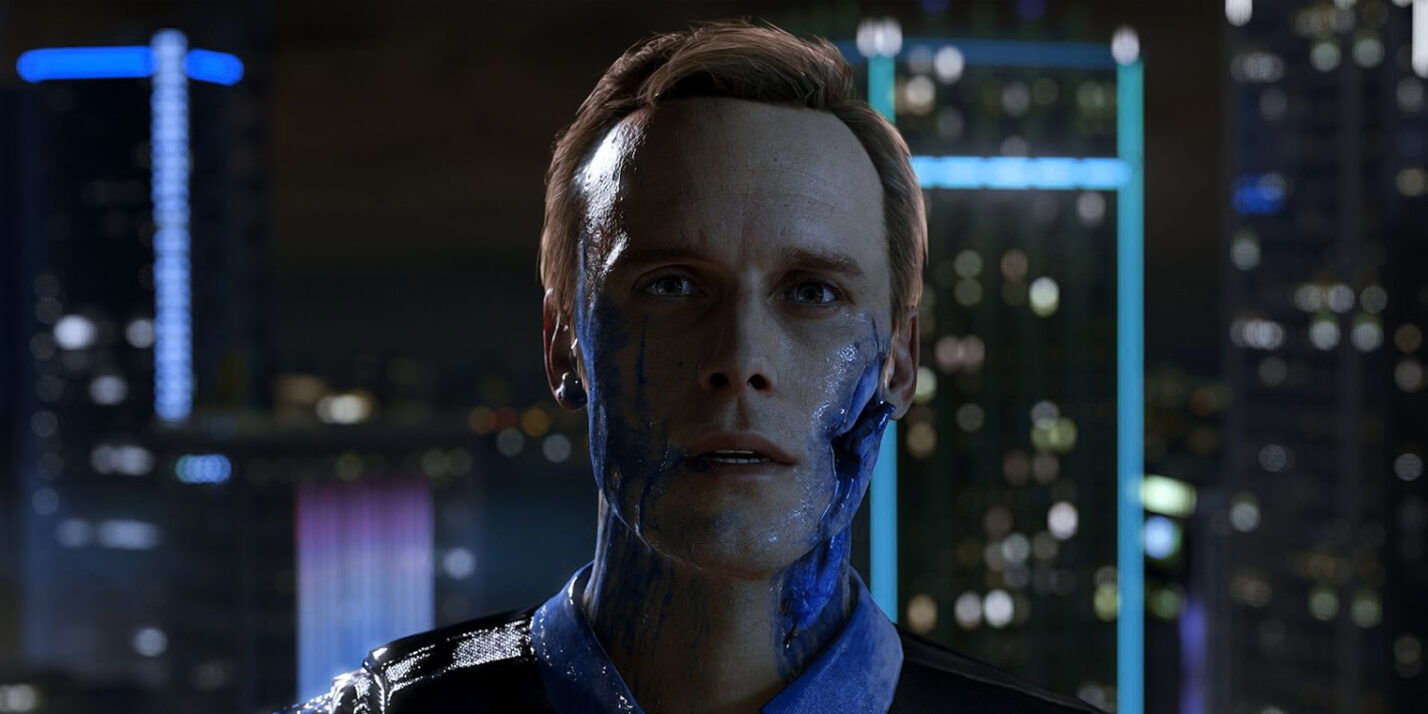
“I believe that the future of games will be meaning,” Cage said in a talk at GDC also in 2013. “You will hear a lot of people telling you it’s technology, it’s more polygons…I have been claiming for years that the future of games is emotion.”
“I don’t know if we’ll get to the point during this cycle where you can’t tell the difference between a film and a game but we will get very close.”
As for his take on what Quantic Dream is now doing with Spellcasters Chronicles, he said in the recent news post that “multiple teams are fully dedicated to crafting the next generation of great games, including something very different, a competitive multiplayer experience, born from the same spirit of curiosity and creativity that has always defined us.”









